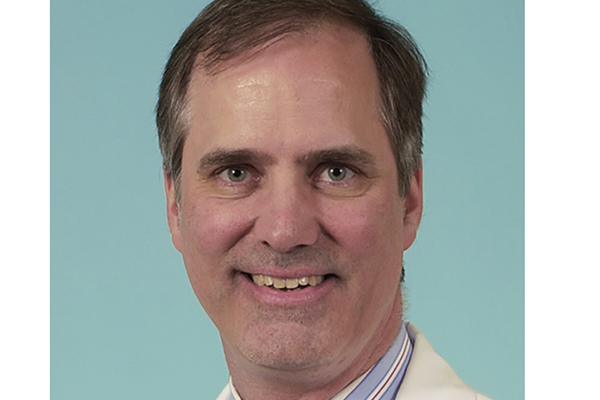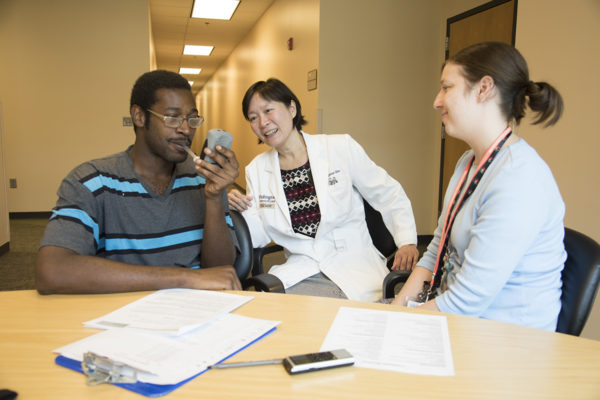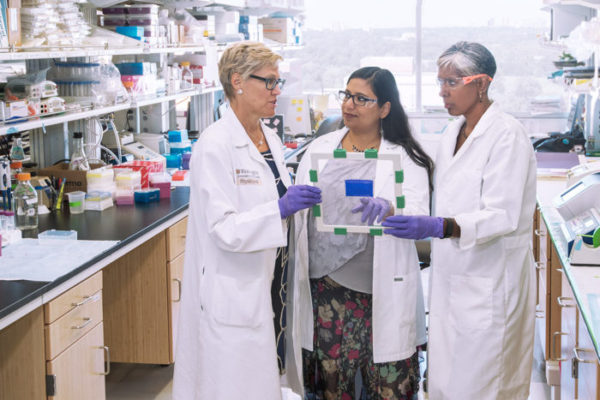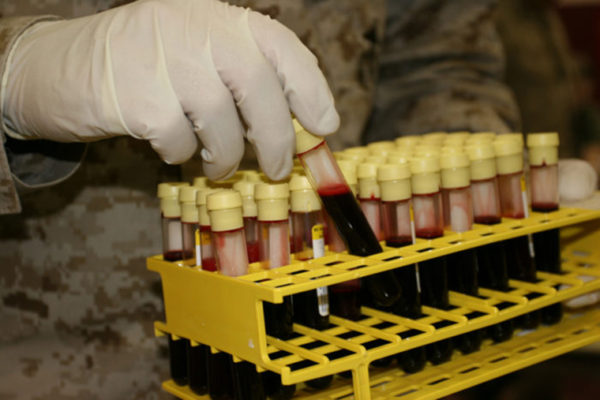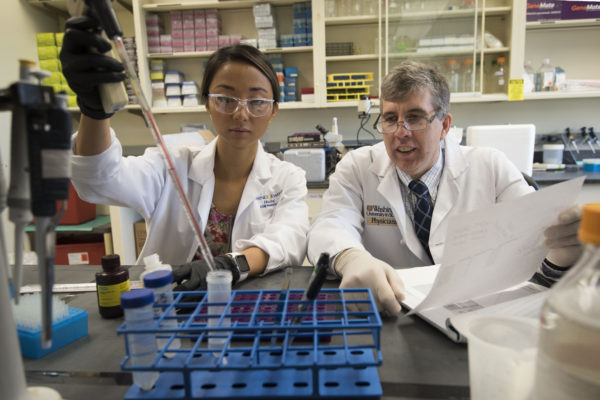Michalski elected radiation oncology co-chair of NCI steering committee
Jeff Michalski, MD, the Carlos Perez Distinguished Professor of Radiation Oncology at Washington University School of Medicine in St. Louis and a radiation oncologist at Siteman Cancer Center, has been elected radiation oncology co-chair of the National Cancer Institute Genitourinary Cancers Steering Committee.
Even with genetic predisposition for lung cancer, quitting smoking reduces risk
Quitting smoking improves health and lowers odds of developing lung cancer. But a new study led by the School of Medicine shows that even among smokers with a genetic predisposition to smoking heavily and developing lung cancer at a young age, the benefits of quitting are significant.
New center focuses on women’s and men’s reproductive health
A new center at Washington University School of Medicine in St. Louis aims to bring together a cadre of faculty members to conduct basic, translational and clinical research focused on reproductive health.
Why ‘O’ blood types may be more likely to die of cholera
People with blood type O often get more severely ill from cholera than people of other blood types. New research from Washington University School of Medicine in St. Louis may explain why.
Excess weight linked to 8 more cancer types
An international team of researchers, including Washington University School of Medicine in St. Louis, has identified eight additional types of cancer linked to excess weight and obesity: stomach, liver, gall bladder, pancreas, ovary, meningioma (a type of brain tumor), thyroid cancer and the blood cancer multiple myeloma. Limiting weight gain over the decades could help to reduce the risk of these cancers, the data suggest.
Sadler receives award from American Society of Hematology
Evan Sadler, PhD, MD, a professor of medicine and director of the Division of Hematology at Washington University School of Medicine in St. Louis, will receive the 2016 Henry M. Stratton Medal for Basic Science.
Acetaminophen does not worsen children’s asthma symptoms
But a new study in young children with asthma — co-authored by the School of Medicine’s Leonard B. Bacharier, MD — compared acetaminophen to ibuprofen. It showed no difference in the severity of asthma symptoms between the two medications.
Long-term exposure to female scent changes courtship behavior in male mice
A kind of neuron found only in male mice and that detects a pheromone in female urine has been identified by researchers at the School of Medicine. But the sex difference is not hard-wired. By manipulating the mice’s living conditions and exposing male mice to female scents for long periods of time, the scientists showed that males lost these neurons and their interest in courting females.
Van Dillen honored by physical therapy association
Linda Van Dillen, a professor of physical therapy and of orthopedic surgery at Washington University School of Medicine in St. Louis, has been named a Catherine Worthingham Fellow by the American Physical Therapy Association.
$10.4 million awarded for pancreatic cancer research
The National Cancer Institute (NCI) has awarded a $10.4 million, five-year grant to Washington University researchers and physicians at Siteman Cancer Center to lead a national group of experts in collaborative pancreatic cancer research.
View More Stories
